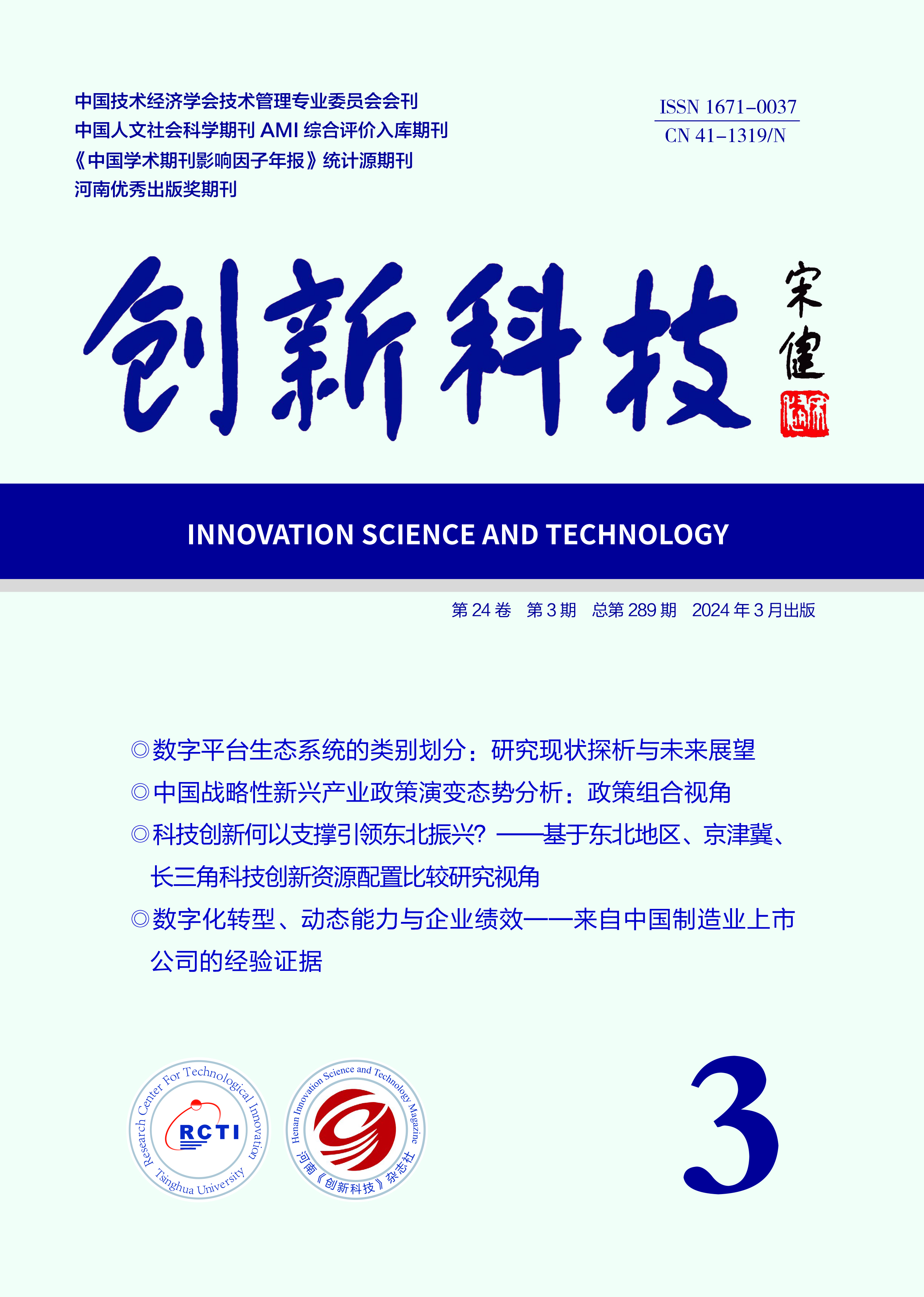INNOVATION SCIENCE AND TECHNOLOGY
Quick Search

All publication are peer-review
Peer review will take the from of double-blind review Judge objectively and impartially
There is no conflict of interest for the reviewer
Review articles shall be kept strictly confidential prior to publication
"New Quality Productive Forces and High-level Science & Technology Self-reliance" Column
Dynamic Links, Bottlenecks and Practical Approaches of Digital Economy Enabling the Development of New Quality Productivity
Wu Shijie, Li Guihua
(School of Marxism, Jilin University, Changchun 130012, China)
Abstract: Along with the in-depth development of a new round of revolution in science, tech⁃ nology, and industry, the digital technology represented by artificial intelligence has been in⁃ creasingly integrated into the economy and society. As a result, global economic activities show an increasing trend toward digitization. Disruptive innovations driven by digital technological changes can promote advanced productivity, build a new production function of economic activi⁃ ties, and give rise to the emergence of a new economic form. The result is the digital economy which is characterized by high levels of informatization, intelligence, and efficiency. It offers a new opportunity and serves as an important engine for developing new quality productivity driven by scientific and technological innovation. Therefore, understanding how to reasonably use this important magic weapon to cultivate and develop new quality productivity has become a major research topic. The core of both the digital economy and new productivity is scientific and technological innovation, both aiming for high-quality, high-efficiency, and sustainable de⁃ velopment, which aligns naturally. From the perspective of Marx's political economy, the pro⁃ cesses of production, distribution, exchange, and consumption in social reproduction "constitute the links of a whole, the differences within a unity". The economy is an organic whole made up of interconnected production, distribution, exchange, and consumption of various products that humans engage in to meet their needs. The digital economy empowers the significant advan⁃ tages of new quality productivity, and the promotion of high-quality development can be effec⁃ tively reflected through these four interrelated links. In an era marked by unprecedented changes, both domestically and internationally, China faces several challenges. These include a lack of scientific and technological innovation, an imbalance in the supply and demand for tal⁃ ent, weaknesses in the effectiveness of the industrial system, an imperfect digital governance system, and many other bottlenecks and constraints. To address these issues, it's crucial to con⁃ duct a thorough analysis of the digital economy's development. This will help identify obstacles that hinder the cultivation of new quality productivity and facilitate precise breakthroughs. Ad⁃ ditionally, promoting the synergy development of the innovation chain, talent chain, industrial chain, and system chain can help seize the opportunity presented by the latest technological revolution and industrial transformation. This collective approach will accelerate the cultivation and development of new quality productivity. Therefore, it is necessary to carry out a compre⁃ hensive transformation of traditional industries through the application of digital technology. This will promote the optimization and upgrading of the traditional industrial structure and build new competitive advantages for development. Additionally, we need to improve the educa⁃ tion and training system to align with the actual needs of scientific and technological innova⁃ tion. This includes fostering a deeper integration of industry, academia, and research to supply highly skilled talents for tackling key core technologies. Creating a supportive environment for development is also crucial. We must improve the institutional mechanisms for innovation and development, enhance our digital governance capabilities, and reduce the market risks associ⁃ ated with the digital economy. These efforts will provide a solid foundation for the cultivation and development of new quality productivity.
Key words: new quality productivity; digital economy; digital technology; scientific and tech⁃ nological innovation; industrial upgrading